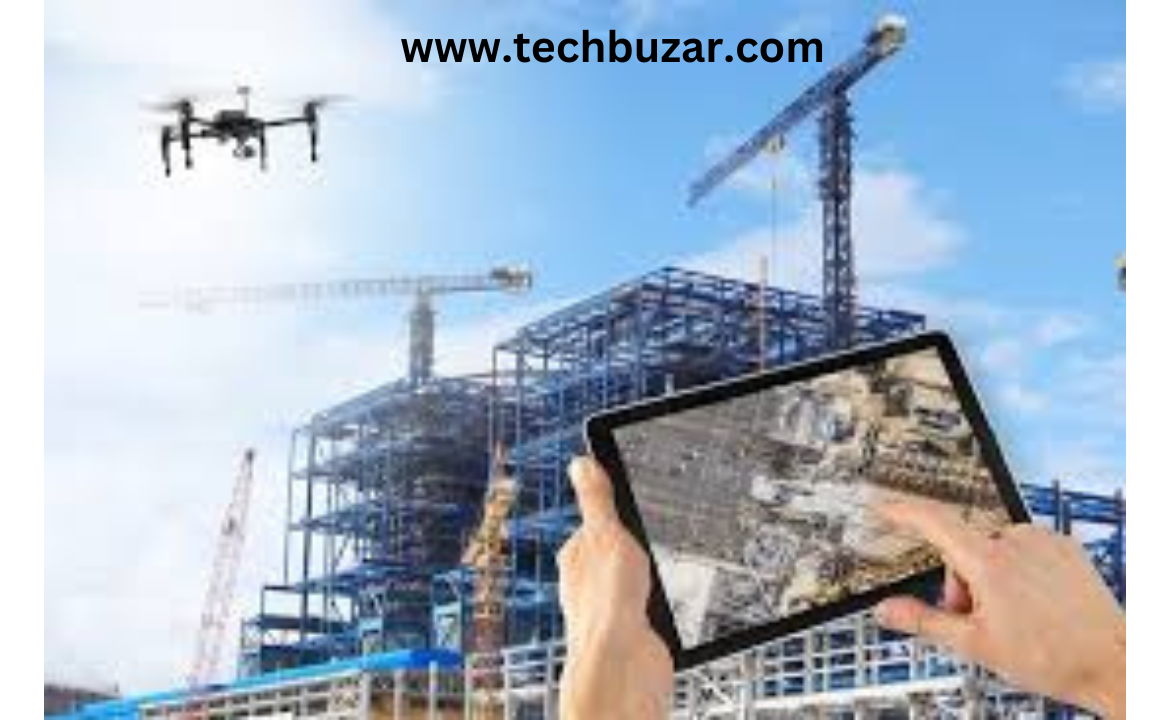
Construction Technology: 100% Revolutionizing and beneficial transformation with Cutting-Edge
Construction Technology stands as a pivotal force in shaping the landscape of modern infrastructure development. With advancements in science and engineering, the construction industry has witnessed a significant transformation, revolutionizing traditional methods and introducing innovative techniques to enhance efficiency, safety, and sustainability.
Importance of Construction Technology
Construction technology plays a vital role in meeting the demands of an ever-evolving society. It enables the construction of robust infrastructure, ranging from residential buildings to towering skyscrapers and intricate bridges. The integration of technology in construction processes has not only accelerated project timelines but has also ensured precision and quality in every aspect of construction.
Evolution of Construction Technology
Traditional methods vs. modern technology
Historically, construction relied heavily on manual labor and basic tools. However, the advent of modern technology has introduced groundbreaking solutions that have revolutionized the industry. From simple pulley systems to sophisticated machinery and software applications, the evolution of construction-technology has been remarkable.
Key milestones in construction technology
Throughout history, several milestones have marked significant advancements in construction-technology. The invention of the steam engine, the development of reinforced concrete, and the introduction of hydraulic machinery are just a few examples of milestones that have shaped the construction industry.
Impact of Construction Technology
The integration of technology in construction processes has had a profound impact on various aspects of the industry.
Efficiency and productivity improvements
Modern construction-technology has significantly improved efficiency and productivity on construction sites. Automated machinery, prefabrication techniques, and advanced project management software have streamlined workflows, resulting in faster project delivery and reduced costs.
Safety enhancements
Safety is a top priority in the construction industry, and technology has played a crucial role in enhancing safety standards. Innovations such as drones for site inspections, wearable technology for monitoring worker health and safety, and automated equipment have helped minimize accidents and ensure a safer working environment.
Environmental considerations
Construction-technology has also contributed to sustainable practices in the industry. The use of eco-friendly materials, energy-efficient designs, and sustainable construction techniques has reduced the environmental impact of construction projects, promoting a greener and more sustainable future.

Major Innovations in Construction Technology
The rapid pace of technological advancement has led to several groundbreaking innovations in the construction industry.
Robotics and automation
Robots and automated machinery are increasingly being used in construction projects to perform tasks that are repetitive, hazardous, or labor-intensive. From bricklaying robots to autonomous construction vehicles, robotics and automation are revolutionizing the way buildings are constructed.
Building Information Modeling (BIM)
BIM technology allows architects, engineers, and construction professionals to create detailed 3D models of buildings and infrastructure projects. BIM enables collaboration, improves decision-making, and helps identify potential issues before construction begins, leading to more efficient project delivery and reduced costs.
3D printing
3D printing technology has emerged as a game-changer in construction, allowing for the rapid prototyping and construction of complex structures. From houses to bridges, 3D printing offers cost-effective and sustainable solutions for building construction.
Advanced materials
Advancements in materials science have led to the development of high-performance materials that are stronger, lighter, and more durable than traditional building materials. Innovations such as carbon fiber-reinforced composites, self-healing concrete, and smart materials are transforming the way buildings are designed and constructed.
Adoption Challenges and Solutions
While the benefits of construction technology are clear, there are challenges associated with its adoption.
Cost considerations
The initial investment required to implement construction-technology can be significant, especially for smaller firms or projects. However, the long-term cost savings and efficiency gains often outweigh the upfront costs.
Skilled labor requirements
The integration of technology in construction processes requires skilled workers who are proficient in using advanced machinery and software. Investing in training and education programs can help address the shortage of skilled labor in the industry.
Integration with existing systems
Integrating new technology with existing construction processes and systems can be challenging. However, careful planning and implementation strategies can help minimize disruption and maximize the benefits of technology adoption.
Training and education initiatives
To fully harness the potential of construction technology, ongoing training and education initiatives are essential. Providing workers with the skills and knowledge they need to effectively utilize new technology is critical to success.
Future Trends in Construction Technology
Looking ahead, several emerging trends are poised to shape the future of construction technology.
Augmented Reality (AR) and Virtual Reality (VR)
AR and VR technologies are increasingly being used in construction for project visualization, training, and on-site assistance. These immersive technologies offer new ways to design, plan, and execute construction projects more efficiently.
Internet of Things (IoT)
The IoT is revolutionizing the construction industry by connecting physical devices and equipment to the internet, enabling real-time monitoring and data analysis. IoT sensors can track equipment performance, monitor environmental conditions, and optimize resource usage, leading to improved efficiency and productivity.
Sustainable construction practices
As concerns about climate change and environmental sustainability continue to grow, the construction industry is embracing sustainable practices and technologies. From green building materials to renewable energy systems, sustainable construction is becoming increasingly important in addressing environmental challenges.
Conclusion
Construction technology continues to drive innovation and transformation in the building industry. From robotics and automation to advanced materials and sustainable practices, the future of construction looks promising. By embracing new technologies and adopting sustainable practices, the construction industry can build a brighter, more resilient future for generations to come.
FAQs :
What is construction technology?
- Construction technology refers to the use of advanced tools, machinery, and techniques to streamline construction processes and improve efficiency, safety, and sustainability in the building industry.
What are some examples of construction-technology?
- Examples of construction-technology include robotics and automation, Building Information Modeling (BIM), 3D printing, advanced materials, and sustainable construction practices.
How does construction technology improve safety?
- Construction technology improves safety by introducing automated machinery, wearable technology for monitoring worker health and safety, and drones for site inspections, thereby minimizing accidents and ensuring a safer working environment.
What are the challenges of adopting construction technology?
- Challenges of adopting construction technology include cost considerations, skilled labor requirements, integration with existing systems, and the need for training and education initiatives.
What are some future trends in construction technology?
- Future trends in construction technology include the use of Augmented Reality (AR) and Virtual Reality (VR), Internet of Things (IoT) technology, and sustainable construction practices to address environmental challenges.


